Politics
Mpofu, Sikhakhane and Jiba: Zuma’s MK Party relies on legal heavyweights in showdown with ANC
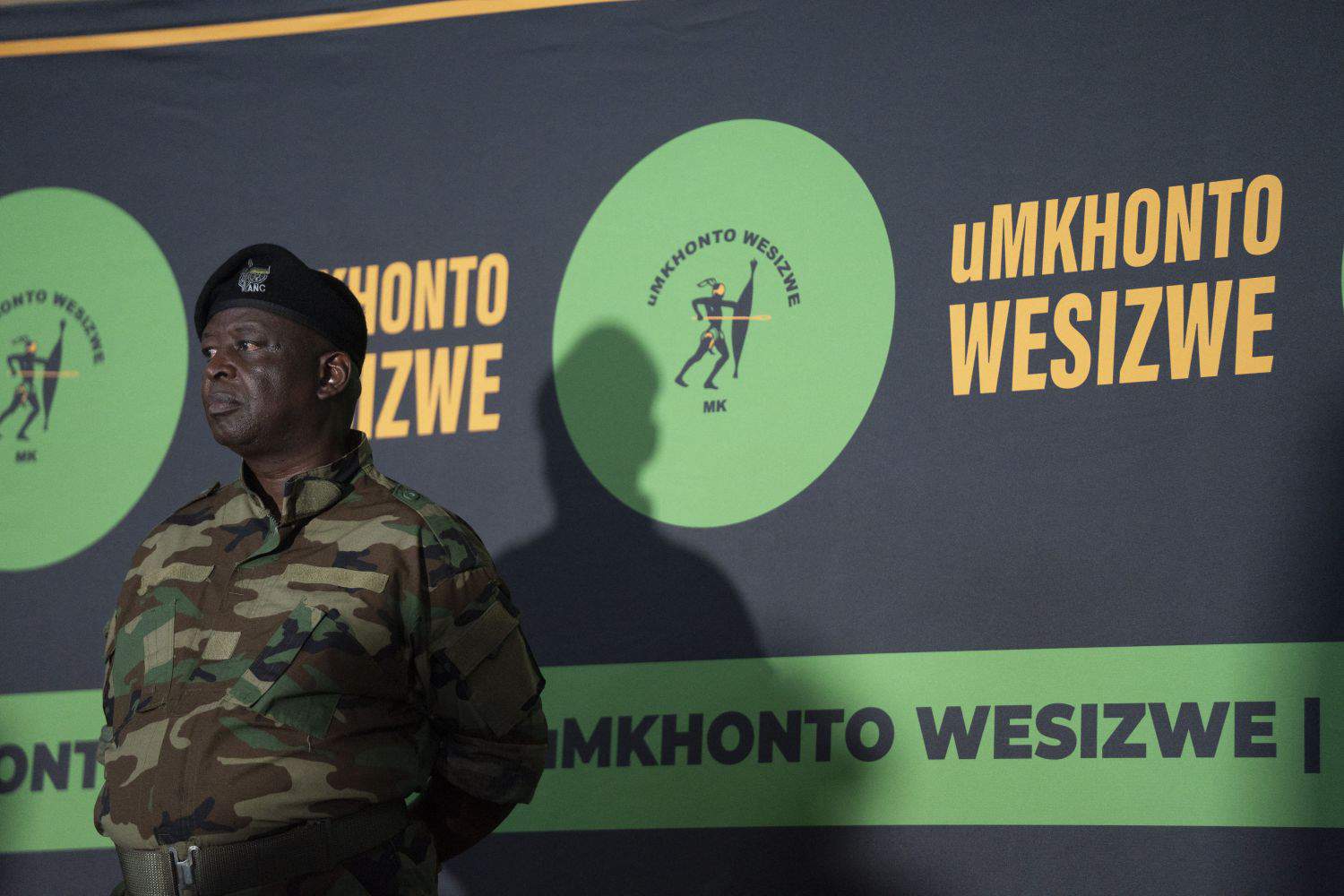
- The uMkhonto weSizwe Party is facing a two-fold existential threat.
- The ANC approached the Electoral Court and KZN High Court to stop the MK Party from contesting the elections in colours mirroring its history and logo.
- MK Party advocates Dali Mpofu and Muzi Sikhakhane enlisted former NPA boss Nomgcobo Jiba to take on the ANC’s application.
The newly formed uMkhonto weSizwe Party is relying on two senior counsels and a former top National Prosecuting Authority (NPA) official in one of its parallel legal fights against the ANC.
They are all known for doing former president Jacob Zuma’s legal heavy lifting.
ANC secretary-general Fikile Mbalula suggested on Thursday that there was a sinister motive behind the formation of the MK Party.
“And I will explain as time goes. The truth about the MK Party is not what former president Zuma is saying, and he knows it’s not about Cyril and all of that. It’s not that and he knows what it is; he knows the truth,” he said.
The MK Party is facing an existential threat posed by the ANC’s twin court applications: one, in the Electoral Court sitting in Bloemfontein, in which the ANC wants the Zuma-endorsed political party’s registration with the Electoral Commission of South Africa (IEC) declared null and void due to the theft of its history as it pertains to uMkhonto weSizwe.
And, two, the ANC initiated another application in the KwaZulu-Natal High Court in Durban regarding a logo dispute.
The ANC argued that the MK Party could not use the likeness of the brand of its former armed wing, uMkhonto weSizwe.
The MK Party argued in court papers that the ANC’s efforts to block its participation in the elections should be rejected by both courts.
In the Electoral Court case set for 19 March, advocates Dali Mpofu and Muzi Sikhakhane will lead the MK Party’s pushback against the ANC’s claim that its registration as a political party – approved by the IEC – was unlawful.
Mpofu and Sikhakhane will be bringing in from the cold the former deputy national director of public prosecutions, Nomgcobo Jiba.
All three lawyers gained notoriety for their proximity to Zuma, with both Mpofu and Sikhakhane playing significant roles in the former ANC president’s “Stalingrad” legal defence to corruption charges.
Jiba, dismissed by President Cyril Ramaphosa as NPA boss, returned to the courtroom as a pupil advocate in 2019.
Ramaphosa had overturned a controversial decision by Zuma to not institute an inquiry into the fitness to hold office of Jiba.
Previously slated for her close proximity to Zuma, she has largely kept out of the news since her dismissal by Ramaphosa.
In 2019, the Mokgoro Inquiry, chaired by retired Constitutional Court Judge Yvonne Mokgoro, found Jiba and the head of the Specialised Commercial Crimes Unit, advocate Lawrence Mrwebi, unfit to hold office.
Fast-forward to 2024, the pro-Zuma legal triumvirate is now preparing to come to his aid as the party he leads, the MK Party, is doing battle with the ANC.
The ANC has asked the Electoral Court to declare the IEC’s registration of the MK Party unlawful.
If the ANC succeeds, this will bar the MK Party from contesting the elections.
Mpofu, Sikhakhane, Jiba and a lawyer referred to only as P May are the legal representatives of the MK Party, whose founder, Jabulani Khumalo, filed the answering affidavit against the ANC’s application.
In court documents, Khumalo, through the four lawyers, said: “The ANC seeks to split hairs by suggesting that the letter of the deputy chief electoral officer did not include a requirement for the supplementation of the existing application. This is an untenable argument and flies in the face of the facts, logic, and the correct legal and constitutional context.”
The ANC’s application belabours the point that the IEC had sent the MK Party a rejection letter in response to its application because of an issue with the signatures required for a political party to be eligible to contest the elections, but the MK Party argued the letter sought to correct its application.
In the heads of argument, the four representatives set out Khumalo’s argument and label the ANC’s application as “misconceived, unmeritorious and should be dismissed with costs” for two counsels, preferably on a punitive scale, to indicate the court’s “displeasure” at the ANC’s “misconduct” and to discourage “similar frivolous” applications.
The MK Party said the ANC was trying to “remedy its own negligence” – for failing to object to the MK Party’s registration within the prescribed timelines – by seeking an order to set aside the IEC’s approval of the MK Party’s application to register as a political party.
“The right to form a political party is a right enshrined in Section 19 [1] of the Constitution and it is part of the broad family of political rights.
“The ANC’s misconceived and narrow interpretation does the opposite of its contention as it seeks to frustrate this very right to form a political party,” the MK Party’s lawyers said in court documents.
The Electoral Court will hear the case on 19 March.
The clash between the two parties amped up when Zuma took the role as the face of the MK Party.
The ANC first sought to downplay concern about the threat of the MK Party eroding its support, particularly in KwaZulu-Natal.
It had, however, painted a different picture in court, expressing concerns that the MK Party might confuse ANC voters.
“Will it weaken the ANC? We don’t know. Does it have influence? We don’t know.
“We do what we can, but we didn’t think in our wildest dreams we would be in KwaZulu-Natal and everywhere in the country talking about Zuma as opposed to us.
“We thought we would be the same force and in the same direction. Now, he has strengthened the hand of our opponents. He has, and he doesn’t think like that. He doesn’t see it,” said Mbalula.
The MK Party told the court it was formed last year to rescue the ANC and to be a political home for those disgruntled with the current state of the ruling party.
Mbalula said anyone who wanted to “rescue” the ANC should do so from within.
“It doesn’t work like that because you are collaborating with the enemy; you are collaborating with the opponents of the ANC.
“You can only rescue the ANC from within, if you believe that something is wrong ideologically, and has gone wrong in the ANC.
“If the ANC fails, Zuma will account for that. He would have contributed to its failure … because there are people who believe in him, and there are opportunists also who are with him, who stand to benefit with positions, patronage, and all of that.
“The era of patronage they benefitted from is over, and they think they can get it through the MK Party.
“And that is where they go in their numbers, look at them and look at their names, and that’s why there is a manifesto every weekend because there’s nobody in charge there because it is a party that was formed for a particular mission,” he said.
Current Affairs
New survey points to coalition-led SA, but voter apathy a major factor
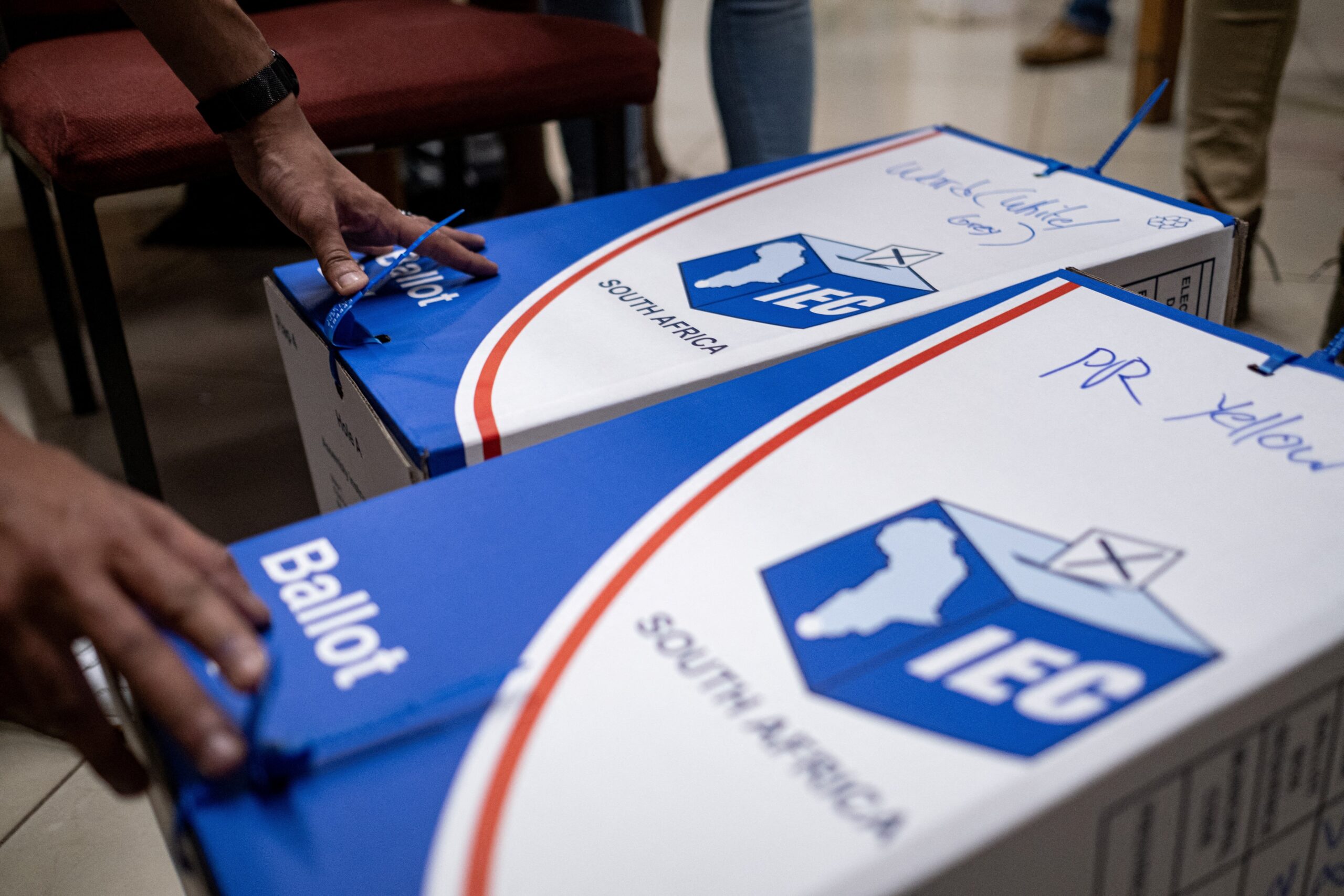
The results of an in-depth survey conducted by African Innovation Research SA (AIRSA) point to the country’s future being in the hands of coalitions and raise concerns about voter apathy, especially among the youth.
The initial sample comprised some 5 000 participants, of whom 46% confirmed they were either not interested in voting despite being registered or had not registered.
The majority of those surveyed by the independent research company based in Cape Town were in the 18–35 age group, a generation who are increasingly disillusioned with how the country is run.
The remaining 2 700 participants, who were interviewed from across a broad section of South Africa’s nine provinces, indicated that support for the ruling ANC is in decline, dipping below the 50% mark to 43% overall.
The ANC’s strongholds remain the Eastern Cape (61% of those surveyed), 58% in the Free State and 65% in Limpopo, where its challenger is the EFF at 23.7%.
In the country’s fourth-largest economy, Mpumalanga, the ANC leads with 52.3%, the EFF at 21.7% and the DA at 19.7%.
In the North West province, it’s a similar pattern, albeit reversed, with the ANC at 48.3%, the DA at 27.7% and the EFF at 20.0%, while in the Northern Cape, the ANC leads with 47.3%, followed by the DA with 24.3% and the EFF with 15.7%.
The country’s economic engine, Gauteng, is a key player in the power dynamics. Here, the ANC garnered 38.7%, but the EFF is growing its base to 19.3%, challenging the DA’s 20% of the province’s voters.
In the Western Cape, as expected, the DA holds onto a leading margin at 46.0%, with the ANC and EFF at 22.3% and 8.7% respectively. Gayton McKenzie’s Patriotic Alliance (PA) also features in the country’s southernmost province, making a notable showing at 5%.
While former president Jacob Zuma may have been barred from becoming a member of Parliament in the Constitutional Court this week, the new uMkhonto weSizwe Party (MKP) will play a pivotal role in KwaZulu-Natal. Results of the AIRSA survey show that while the ANC currently remains ahead with 28.7%, it’s an even race in the province with similar support for the IFP at 26.0% and MKP at 26.7%.
As experience dictates, the smaller parties will begin a series of bargaining tactics as to whose deck they end up in and call the shots.
At collectively accounting for around 20% of the upcoming vote, these potential coalition partners carry significant influence.
AIRSA also noted that voting in this sector is personality-driven as opposed to ideology.
The fragmentation of South Africa’s political landscape could also contribute to increasing dissatisfaction and disillusionment, particularly when linked to the country’s youth and increasing unemployment.
© IOL (Cape Times)
Politics
Zuma lashes out at judges after election ban
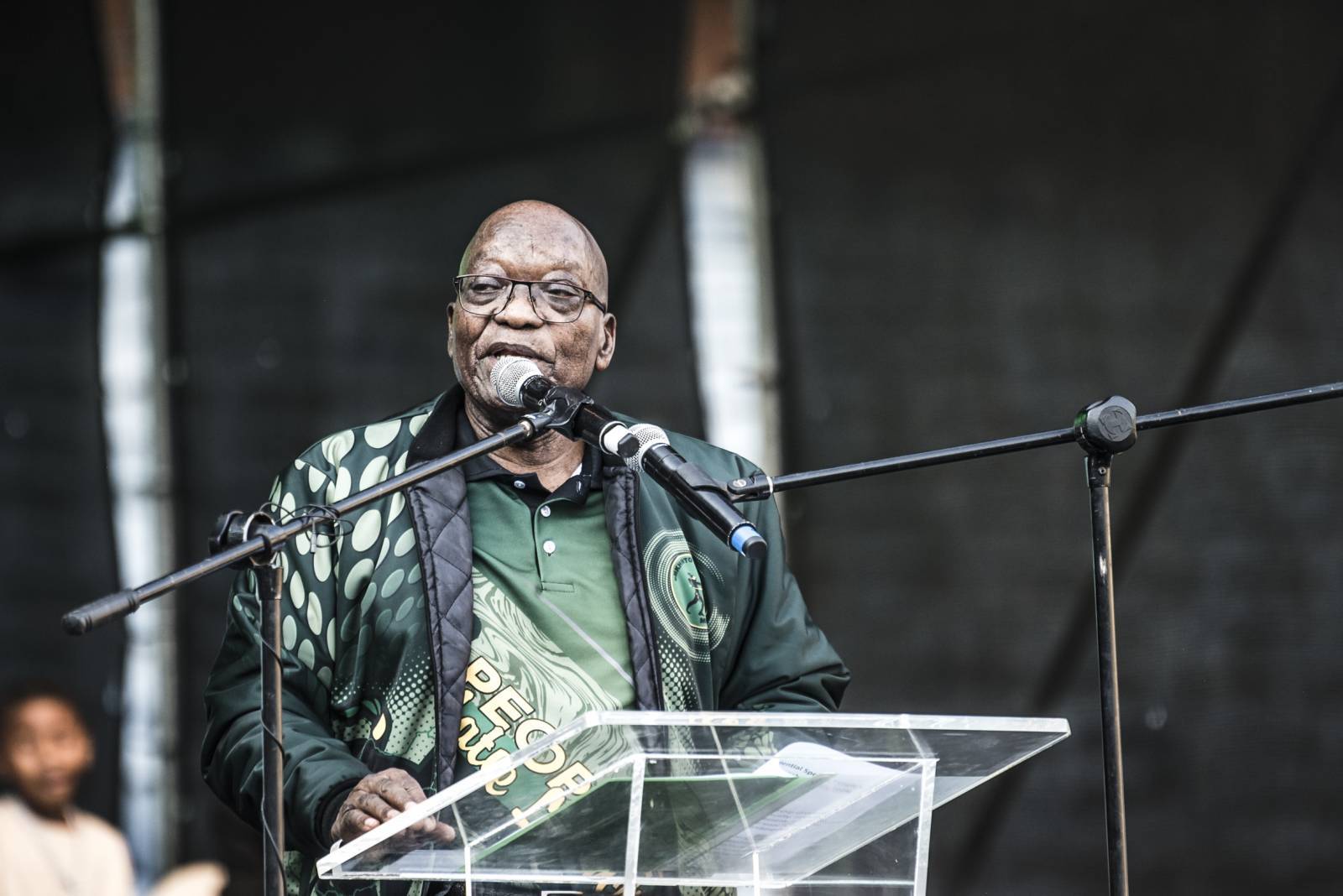
Former President Jacob Zuma has launched a scathing attack on some of the country’s top judges after he was barred from running for parliament on Monday.
In his first interview since the ban, Zuma told the BBC the Constitutional Court was wrong to decide he was unfit to run, based on his 2021 conviction for contempt of court.
“I expected that from our judges, but they are definitely wrong. Not correct,” the 82-year-old said, adding that the constitution should be changed.
Ahead of next week’s general election, Zuma had been campaigning under the banner of the newly formed uMkhonto weSizwe (MK) party.
He joined the party after falling out with the governing African National Congress (ANC), which he used to lead.
The electoral commission argued that the constitution bars anyone who was sentenced to more than 12 months in prison from serving as a lawmaker – a view backed by the Constitutional Court judges.
Zuma was convicted in 2021 for refusing to testify at an inquiry investigating corruption during his presidency.
His lawyers had insisted he was entitled to become an MP as his sentence was reduced to three months after current President Cyril Ramaphosa released him from prison in what was widely seen as an attempt to placate the former president’s angry supporters.
“The judges of the Constitutional Court have acted very funny to me – towards me in particular,” Zuma told the BBC.
“They are not taking into account the will of the people of this country, they use their own will.”
He was president from 2009 to 2018 before being forced out as leader of the ANC amid allegations of widespread corruption in his government.
The corruption, widely known as “State Capture”, saw hundreds of millions of rands of public assets taken into private hands. Zuma has always denied any direct role in corruption, but is due to face trial next year on allegations of bribery.
He told the BBC he had been wrongly stripped of his role as leader of the ANC.
“I don’t know what ‘State Capture’ means. If people say I am corrupt, what did I do? Do you have any facts about it? Am I guilty?
“I was removed before the end of my term, and nothing was produced as evidence that this was an issue.”
Zuma’s MK party had previously voiced its desire to change South Africa’s constitution, which was drawn up 30 years ago at the birth of the country’s democracy following decades of white-minority rule.
Asked about this in the light of his election ban, Zuma reiterated that the historic document needed to be changed.
“This constitution in the continent of Africa is guided by the laws from Europe, not us,” he said.
“There is nothing that has come right in this continent because we are still dominated by those who were the ones [who] slaved us, and after slavery, oppressed us, and after oppression, put their own laws to run us.
“There are details that clash with our lives.”
An Ipsos opinion poll released last month gave MK 8% of the vote, and the ANC 40% as it loses support to MK and other opposition parties.
But some analysts suggest that with the governing party stepping up its campaign in recent weeks, it could still cross the 50% mark. But if the ANC gets less than half of the vote, it would lose its majority for the first time in 30 years.
MK is expected to do especially well in Zuma’s home region of KwaZulu-Natal. Some opinion polls suggest it could emerge as the biggest party in KwaZulu-Natal, ending ANC dominance of the region.
After Zuma was jailed for contempt of court in 2021, angry supporters sparked days of deadly riots. More than 300 people were killed in the clashes.
On Wednesday Zuma said this violence demonstrated the scale of public support for him.
“This must tell you that the masses of this country loves Zuma – that’s why we had that,” he said.
When asked by the BBC if he would use this interview to call for peace and calm ahead of next week’s election, Zuma replied: “I’ve always done so.”
© BBC News
Current Affairs
Iran’s supreme leader leads prayers at Raisi funeral
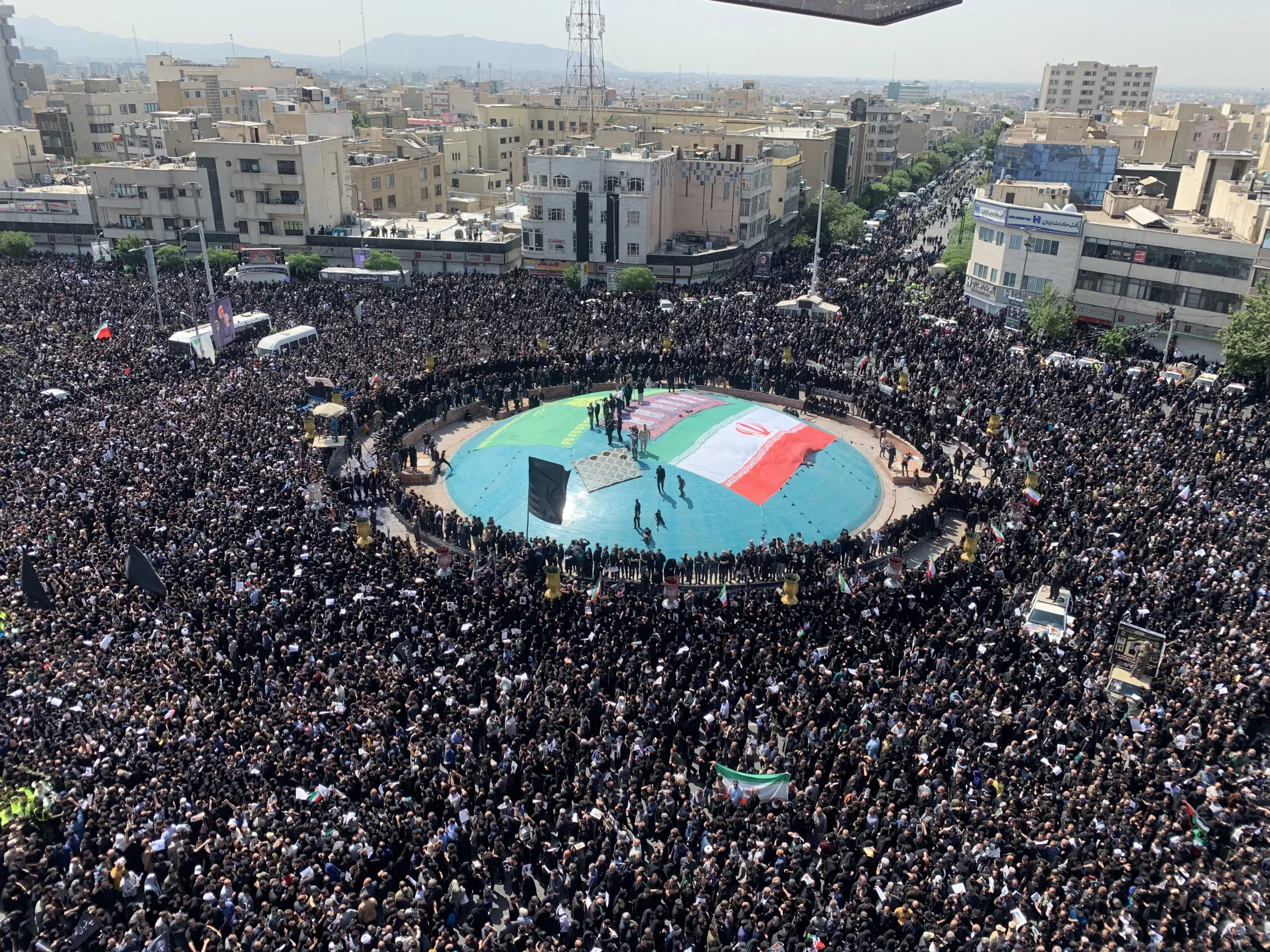
Iran’s supreme leader has presided over a funeral for the country’s late president, foreign minister and others killed in a helicopter crash on Sunday.
Ayatollah Ali Khamenei led prayers at Tehran University, where caskets carrying the dead were draped in Iranian flags.
President Ebrahim Raisi died alongside Foreign Minister Hossein Amir-Abdollahian and six others in a helicopter crash near the border with Azerbaijan.
Authorities had warned against demonstrations against the funeral procession and insults posted online.
“Oh Allah, we didn’t see anything but good from him,” Ayatollah Khamenei said in the standard prayer for the dead in Arabic.
Iran’s acting president, Mohammad Mokhber, stood nearby and openly wept during the service.
People then carried the coffins out on their shoulders, with chants of “Death to America” heard outside.
They loaded them onto a trailer for a procession through downtown Tehran to Azadi Square, where Raisi gave speeches in the past.
In attendance were top leaders of Iran’s paramilitary Revolutionary Guard, one of the country’s major power centres.
Also on hand was Ismail Haniyeh of Hamas, the militant group that Iran has armed and supported during the ongoing Israel-Hamas war.
Haniyeh is widely considered Hamas’s overall leader and has been a prominent member of the movement since 1980. The US Department of State designated him a terrorist in 2018.
“I come in the name of the Palestinian people, in the name of the resistance factions of Gaza…to express our condolences,” Haniyeh said.
He also described meeting Raisi in Tehran during Ramadan, the holy Muslim fasting month.
He said he heard the president say that “the Palestinian issue” remains the key one of the Muslim world, which “must fulfil their obligations to the Palestinians to liberate their land”.
He also claimed that Raisi called Hamas’ October 7 attack in Israel, which saw 1,200 people killed and 250 others taken hostage, an “earthquake in the heart of the Zionist entity”.
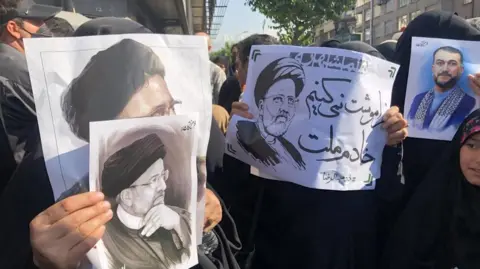
Also expected to attend services in Tehran were Pakistan’s Prime Minister Shehbaz Sharif and a delegation from the Taliban of Afghanistan, which included their Foreign Minister Amir Khan Mutaqqi.
Iran’s theocracy declared five days of mourning over Sunday’s crash, encouraging people to attend the public mourning sessions.
Typically, government employees and schoolchildren attend such events en masse, while others take part out of patriotism, curiosity or to witness historic events.
For Iran’s Shiite theocracy, mass demonstrations have been crucial to demonstrating the legitimacy of their leadership since millions thronged the streets of Tehran to welcome Grand Ayatollah Ruhollah Khomeini in 1979 during the Islamic Revolution, and also attended his funeral 10 years later.
An estimated one million turned out in 2020 for processions for the late Revolutionary Guard General Qasem Soleimani, who was killed in a US drone strike in Baghdad.
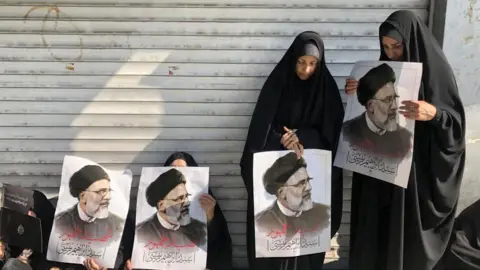
Across the capital, large banners were raised hailing Raisi as “the martyr of service”, while others bade “farewell to the servant of the disadvantaged”.
Some residents in Tehran received texts urging them to attend Wednesday’s ceremonies, the AFP news agency reported.
Footage carried by state TV showed streets filled with mourners, many of whom were carrying pictures of Raisi or the Iranian flag.
Funeral rites for the men began on Tuesday in the city of Tabriz and the Shiite clerical centre of Qom, where thousands of mourners attended ceremonies.
After Wednesday’s procession in the capital, Raisi’s remains will be moved to South Khorasan province, before being transferred to his home city of Mashhad in the northeast.
He will then be buried on Thursday evening in the city after funeral rites at the Imam Reza shrine.
Raisi, a hardline cleric, was a highly divisive figure in Iran. In the 1980s, he oversaw the execution of scores of opposition activists while working as a prosecutor.
He unleashed a brutal crackdown against demonstrators angered by the killing of 22-year-old Mahsa Amini in 2022. She died three days after she was detained by morality police in the capital for allegedly violating Iran’s strict rules requiring women to cover their hair with a hijab, or headscarf.
But his ultra-conservative outlook won favour with supporters of the regime, and Raisi was viewed as a possible successor to Ayatollah Khamenei.
© BBC News
Politics
Ireland to recognise Palestinian state
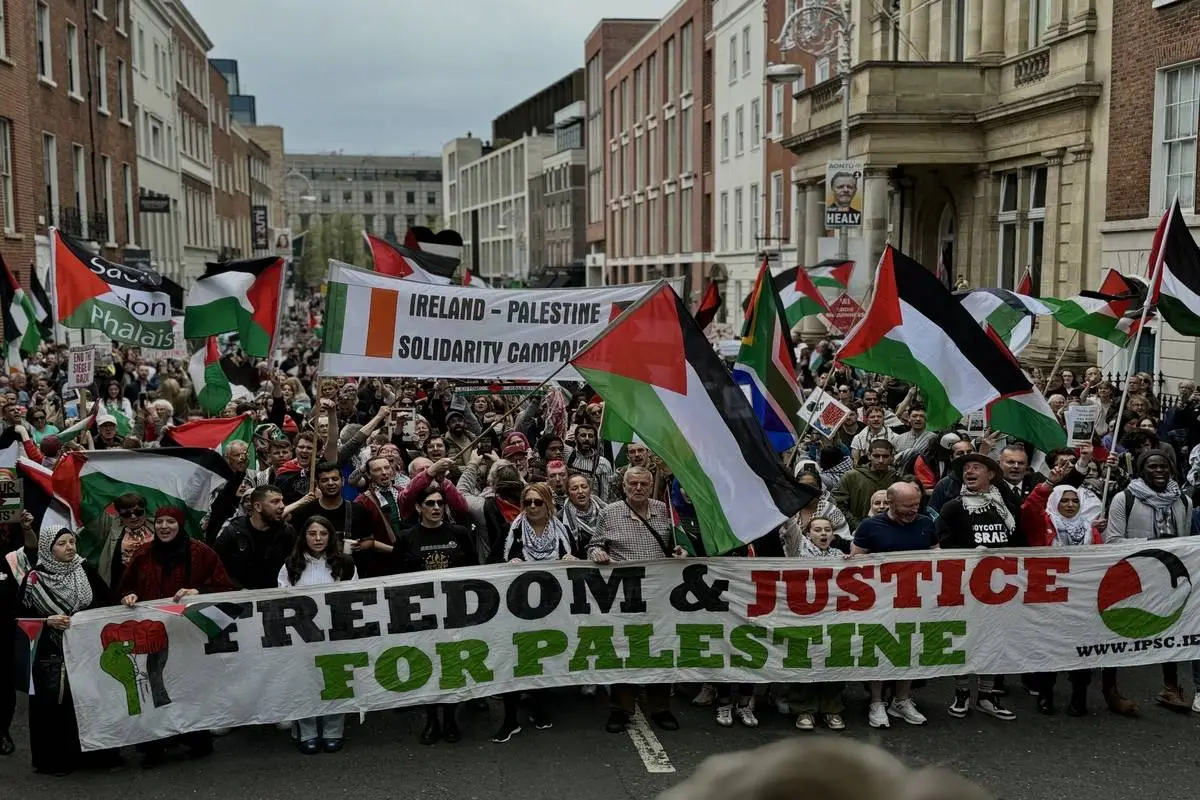
Ireland will recognise a Palestinian state, Prime Minister Simon Harris said on Wednesday, adding that he expected other countries to follow in the coming weeks after talking to world leaders.
“Today, Ireland, Norway, and Spain are announcing that we recognise the state of Palestine,” Harris said at a press conference.
“In the lead up to today’s announcement, I’ve spoken with a number of other leaders and counterparts and I’m confident that further countries will join us in taking this important step in the coming weeks,” he added.
He said a two-state solution was the only credible path to peace and security for Israel, Palestine and their peoples.
The recognition of statehood has particular resonance in Ireland given its history, Harris said.
“Taking our place on the world stage and being recognised by others as having the right to be there was a matter of the highest importance for the founders of our state,” he said.
He added that Ireland was unequivocal in fully recognising Israel and its right to exist “securely and in peace with its neighbours”, and he called for all hostages in Gaza to be immediately returned.
Ireland’s recognition of Palestine will be formally enacted on May 28, foreign minister Micheal Martin said on X.
© Reuters




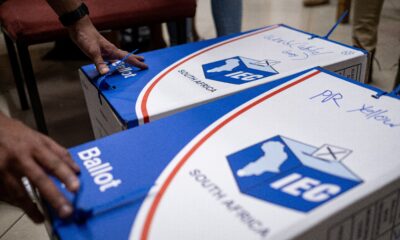

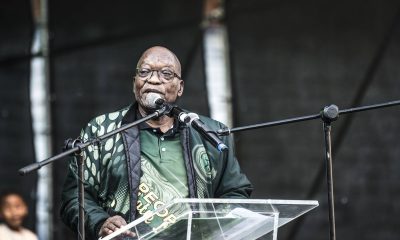

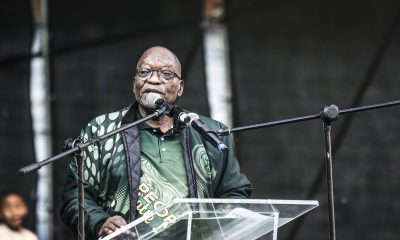








You must be logged in to post a comment Login